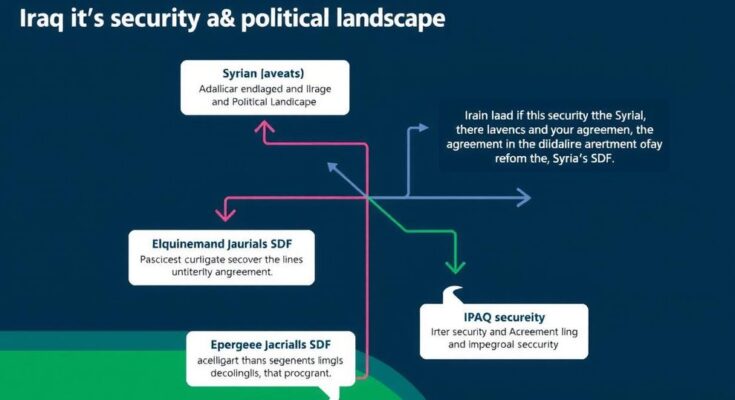A peace agreement in Syria aims to foster stability by ensuring equal political opportunities for all citizens, recognizing the Kurdish community’s rights, and subsequently impacting Iraqi politics. While Kurdish leaders from Iraq greet this development positively, analysts express concerns about its feasibility and potential motives behind it.
A recent peace agreement signed in Damascus between Syria’s transitional government and the Kurdish-led Syrian Democratic Forces (SDF) has sparked cautious optimism among Iraqi Kurdish leaders and scepticism among political analysts regarding its feasibility. The agreement, concluded by Syria’s interim president Ahmed Al-Sharaa and SDF Commander Mazlum Abdi, aims to create stability and democratic reforms in a nation torn apart by conflict.
The key provisions of the agreement include equal political opportunities for all Syrians, with roles in state institutions assigned based on merit, and the inclusion of the historically marginalized Kurdish community as an essential part of the state, thus ensuring full citizenship rights. Furthermore, the agreement establishes a nationwide ceasefire and mandates the integration of civil and military institutions in northeast Syria under central government control, allowing Damascus to oversee vital infrastructure such as border crossings and oil fields.
Iraqi Kurdish political leaders have welcomed this agreement, expressing optimism for its regional implications. Notably, Fethullah Husseini, representative of the Autonomous Administration of North and East Syria (AANES) in Iraqi Kurdistan, remarked that the agreement could foster peace in Syria, positively affecting Iraq’s stability. Additionally, Pavel Jalal Talabani, leader of the Patriotic Union of Kurdistan (PUK), and Nechirvan Barzani, President of the Kurdistan Region, offered their support, emphasizing the importance of stability in Syria and the protection of the Kurdish community’s rights.
Despite this optimism, some analysts harbor doubts regarding the viability of the agreement. Kamaran Mantik, professor at Salahadin University, noted that there are foundational issues impeding successful implementation, highlighting a significant divergence in visions between the Kurds and the Syrian government. Mantik further claimed that the Syrian government might exploit the agreement to mitigate international criticism and internal dissent, rather than as a genuine move towards peace, given the geopolitical complexities involving powers like Russia, Turkey, and the United States.
International reactions reflect a range of perspectives. U.S. Secretary of State Marco Rubio expressed support for the agreement, while Turkish President Recep Tayyip Erdogan urged its full implementation. As Syria navigates this crucial juncture, the actualization of the Damascus agreement could determine whether enduring stability and unity may emerge or if historical divisions will persist.
In conclusion, the recent agreement between the Syrian government and the SDF is a pivotal moment that could shape the future of both Syria and Iraq. While it has garnered support among Iraqi Kurdish leaders who anticipate regional stability, significant skepticism remains among analysts regarding its practical execution. The geopolitical landscape is intricate, with multiple powers influencing outcomes in Syria. Ultimately, the success of this agreement will significantly impact the enduring quest for peace and cohesion in the region.
Original Source: www.newarab.com




